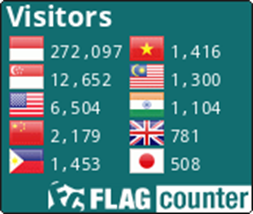Gender Role on MSME Performance Through Entrepreneurial Behaviour and Ease of Access to Capital
DOI:
https://doi.org/10.26905/jbm.v11i1.12388Keywords:
entrepreneurial behaviour, easy access to capital, gender, and MSME performanceAbstract
In order for MSMEs to remain competitive in an unstable market circle, the digital era, especially after the current COVID-19 pandemic crisis, the performance of MSME needs to be improved. However, the performance of MSME in Indonesia is unfortunately still overshadowed by the issue of gender equality which is related, among others, to ease access to capital in running their business. Therefore, the purpose of this study was to examine the direct and indirect relationship between gender and MSME performance through entrepreneurial behaviour and ease of access to capital. The steps applied to this research started with collecting data, the researcher took a list of MSMEs in Muna Regency with a total sample of 106 MSME. Data can be obtained by interviewing and administering questionnaires to MSME managers or owners, then factor analysis is carried out using the Structural Equation Modeling (SEM) concept with the Partial Least Square (PLS) program. The results of our analysis show that there is no direct influence between gender on MSME performance but there is an indirect effect through entrepreneurial behaviour and easy access to capital.Downloads
References
Acheampong, G. (2018). Microfinance, gender and entrepreneurial behaviour of families in Ghana. Journal of Family Business Management, 8(1), 38–57. https://doi.org/10.1108/JFBM-09-2017-0028
Adawiyah, W. R. (2014). Faktor Penghambat Pertumbuhan Usaha Mikro Kecil Menengah (UMKM): Studi di Kabupaten Banyumas. JKMP (Jurnal Kebijakan Dan Manajemen Publik), 2(2), 165.
Ardiana, I. D. K. R., Brahmayanti, I. A., & Subaedi, S. (2010). Kompetensi SDM UKM dan Pengaruhnya Terhadap Kinerja UKM di Surabaya. Jurnal Manajemen Dan Kewirausahaan, 12(1), 42–55. https://doi.org/10.9744/jmk.12.1.pp. 42-55
Ferdinand, A. (2006). Metodologi Penelitian Manajemen.
Gray, C. (2002). Entrepreneurship, resistance to change and growth in small firms. Journal of Small Business and Enterprise Development, 9(1), 61–72. https://doi.org/10.1108/14626000210419491
Hossain, M., Yoshino, N., & Taghizadeh-hesary, F. (2018). TO CREDIT AND SMES ’ PERFORMANCE : Asian Development Bank Institute. 906.
Khalid, B., Maalu, J., Gathungu, J., & McCormick, D. (2016). Entrepreneurial behaviour, institutional context and performance of micro and small livestock enterprises in North Eastern Region of Kenya. Global Journal of Management and Business Research: A Administration and Management, 16(9), 47–53.
Kraus, S., Rigtering, J. P. C., Hughes, M., & Hosman, V. (2012). Entrepreneurial orientation and the business performance of SMEs: A quantitative study from the Netherlands. Review of Managerial Science, 6(2), 161–182. https://doi.org/10.1007/s11846-011-0062-9
Mahastanti, L. A., & Nugrahanti, Y. W. (2013). Bias Gender Dalam Akses Kredit Perbankan. Jurnal Manajemen, XVII(3), 351–361.
Nainggolan, R. (2016). Gender, Tingkat Pendidikan Dan Lama Usaha Sebagai Determinan Penghasilan Umkm Kota Surabaya. Kinerja, 20(1), 1–12. https://doi.org/10.24002/kinerja.v20i1.693
Nguyen, T. T. M., & Nguyen, T. D. (2014). The impact of cultural sensitivity and information exchange on relationship quality. Marketing Intelligence and Planning, 32(7), 754–768. https://doi.org/10.1108/MIP-12-2012-0140
Prayudi, M. A., Vijaya, D. P., & Ekawati, L. P. (2019). What drives MSME performance? The role of gender, operational aspects, and social environment. Journal of Contemporary Accounting, 1(2), 65–84. https://doi.org/10.20885/jca.vol1.iss2.art1
Radipere, S., & Dhliwayo, S. (2014). The role of gender and education on small business performance in the South African small enterprise sector. Mediterranean Journal of Social Sciences, 5(9), 104–110. https://doi.org/10.5901/mjss.2014.v5n9p104
Rante, Y. (2011). Pengaruh Budaya Etnis dan Perilaku Kewirausahaan Terhadap Kinerja Usaha Mikro Kecil Agribisnis di Provinsi Papua. Jurnal Manajemen Dan Kewirausahaan, 12(2), 133–141. https://doi.org/10.9744/jmk.12.2.pp. 133-141
S. Sangadji, S., Supriatin, F., Marliana, I., Afkar, Paerah, A., & Dharta, F. (2022). Metodologi Penelitian. Cendikia Publisher. https://doi.org/10.31219/osf.io/ywemh
Seon, M., Kim, S., & Sherraden, M. (2014). The Impact of Gender and Social Networks on Microenterprise Business Performance. Sociology and Social Welfare, 29, 404–417. https://doi.org/10.15453/0191-5096.3967
Sharma, A., Dua, S., & Hatwal, V. (2012). Micro enterprise development and rural women entrepreneurship: way for economic empowerment. A Journal of Economics and Management, 1(6), 114–127. http://www.pinnaclejournals.com
Sherlywati, S., Handayani, R., & Harianti, A. (2017). Analisis Perbandingan Kemampuan Kewirausahaan Pengusaha Perempuan dan Laki-Laki: Studi pada UMKM di Kota Bandung. Jurnal Manajemen Maranatha, 16(2), 155. https://doi.org/10.28932/jmm.v16i2.386
Sumantri, B., Fariyanti, A., & Winandi, R. (2013). Faktor-Faktor yang Berpengaruh terhadap Kinerja Usaha Wirausaha Wanita: Suatu Studi pada Industri Pangan Rumahan di Bogor. Jurnal Manajemen Teknologi, 12. https://doi.org/10.12695/jmt.2013.12.3.3
Suwarno, H. L., & Ida, I. (2015). Intensi Kewirausahaan pada Mahasiswa-mahasiswa di Indonesia. In Seminar Nasional Multi Disiplin Ilmu Unisbank 2015.
Downloads
Published
How to Cite
Issue
Section
License
Authors who publish with this journal agree to the following terms:
(1) Copyright of the published articles will be transferred to the journal as the publisher of the manuscripts. Therefore, the author confirms that the copyright has been managed by the journal.
(2) Publisher of Jurnal Bisnis dan Manajemen is University of Merdeka Malang.
(3) The copyright follows Creative Commons Attribution–ShareAlike License (CC BY SA): This license allows to Share — copy and redistribute the material in any medium or format, Adapt — remix, transform, and build upon the material, for any purpose, even commercially.














